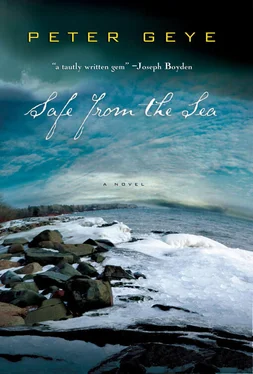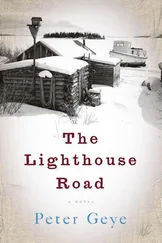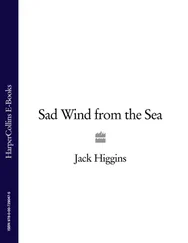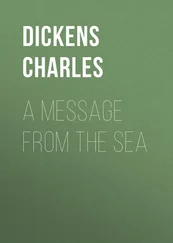Noah stood up and stretched his arms above his head. He felt boyish, nearly giddy in the thrall of the story. “What about the rest of the crew?”
This question seemed to sober Olaf. “The crew? They were just a bunch of anybodies. With the exception of guys like Jan and Luke, they were just men and boys.”
For the first time since Noah had arrived at his father’s house, he called up the picture in the museum, the one of the whole crew dockside with the Rag in the background. Although he could not summon a single face clearly, he could recall the apathy he’d felt looking at them. He remembered chalking it up to some kind of ambivalence toward his father, but in retrospect it was an ambivalence borne by the unconscious knowledge that what his father had just said was — and always had been — the truth. Twice already he’d alluded to the commonness of the crew, and twice now Noah had paused at the realization of this deflating fact: They weren’t gods and giants sunk on that ship, they were men and boys.
“That takes some of the starch out of the story, don’t you think?” Noah asked.
“What do you mean?”
“Isn’t it more fantastic to think of the guys who died as a little bit heroic, as swashbuckling sailors? As something more than a bunch of yokels from Great Lakes port towns?”
“I don’t think so,” Olaf said, pausing to consider it seriously. “It’s real life. In real life there’re boys from port towns.
“There’s one picture of them that I’ve never been able to get out of my mind,” Olaf continued. “After we’d cleared the southwestern tip of the island, must’ve been around suppertime, I went down into the crew’s quarters for a fresh thermos of coffee and something to eat. You remember that the top two decks on the bow of the Rag didn’t have any interior passageways, don’t you?”
Noah nodded.
“Well, that walk usually took, what, twenty seconds? Two flights of stairs, maybe thirty steps altogether? There were eighteen hours of snow and ice coating those stairs and that railing. You put that together with the wind and rolling of the boat and that walk was the hairiest time of my life. Until then anyway.
“The temperature couldn’t have been above zero, and I was out there without my mittens, without a hat, gripping that goddamn railing for dear life. In twenty seconds my fingers were burning cold. I was slipping all over the place helter-skelter. And I couldn’t see three feet in front of me. I remember sitting down for a second, wrapping my arms around the railing with my hands tucked up inside my coat, and hugging that goddamn thing like I was a child.
“The sound of that storm,” Olaf continued, shaking his head as he closed his eyes for a long moment, “it should have been my first warning. I could hear the lake washing over the deck. I could hear the wind roaring. And I sure as hell could feel that wind coming from every direction.” He looked hard at Noah, his eyes colorless in the cabin light. “For maybe three seconds while I was sitting there, everything went quiet, though, and I could hear her bending.”
“Bending?” Noah said, sitting up and combing his sweat-damp hair back with both his hands.
“I sat on that icy step for a couple of minutes. I don’t know what in the hell I was waiting for, but I couldn’t move. The ruckus was out of this world, howling and drumming all over the place. But then it just stopped, went quiet, and I heard it: a slow, high-pitched cry. I knew it was the Rag under the weight of all that ice and water. It sounded human.”
Noah dropped back onto the couch. “Those boats don’t bend.”
“Sure they do,” Olaf countered. “Like skyscrapers give a little in the wind.”
“What did you do?”
“I finally got down into the crew’s quarters. And that’s when I saw them — this is what I was getting at — all bleary-eyed and miserable, sitting around the common table playing euchre. Most of those boys were still drunk when they came back on board in Two Harbors, and when you put the weather and seas like we had on top of what they must have been feeling to begin with, well, they might as well have been dead already.
“Tell you what, I never saw a card game on that ship without a pile of money in the middle of it. Hell, those boys found ways to gamble over Crazy 8s, but not that night. They were just trying to keep their cards on the table.
“There were thirty men on that boat, the lesser part of half of them on the bow — wheelsmen, watchmen, deckhands, the mates — and the rest on the stern — the engineers and oilers and firemen and wipers. The galley crew. The boys on the back had their berths in eight small cabins above the engine room in some goddamn cold and clammy quarters. Steel bunks with lumpy mattresses attached to the low overheads. Even the shortest guy back there couldn’t stand upright without knocking his head on something.
“And noisy as hell, too. They had to sleep through the constant whining of that engine and the churning of the prop. None of them could hear a goddamn thing. They had shit and grime under their fingernails all the time, and their trousers were always dirty at the knees. But for as filthy as they always seemed to be, that engine room was the cleanest place aboard that boat.
“The chief back there was Danny Oppvaskkum — a great guy — who knew the physics and chemistry and engineering of that ship like he’d invented and built it himself. Couldn’t tell which way the wind was blowing, but he could’ve taken that thing apart and put it back together with a screwdriver.”
“How old was he?” Noah asked.
“Danny must’ve been about forty-five.”
“Was it”—Noah paused, hoping a second’s delay might make the question seem more delicate—“you know, was it his fault?”
“Oh, Christ no. No, no. Danny was innocent in that mess. He probably gave each of those boys an extra hour of life with his thinking.”
“There’s a picture of all of you in the maritime museum down in Duluth. Did you know that? You look like a football team in it.”
“They might as well have been a football team, being as they were young and lean to a man.”
“Did they have any idea, do you think?”
“Any idea of what?”
“Any idea they were about to die?”
Olaf closed his eyes, appeared to be thinking about it. “The storm was bad, no doubt about it, but we were killing it. It was snowing like hell, and it was cold as hell, and there’s no doubt some of those boys wished they were dead, but none of us thought we were going to die. Not in our wildest, worst dreams.” He’d rolled up the magazine and tapped his knee with it. After a second he concluded, “At least none of them were thinking about it then.”
Outside, it was still snowing and the leafless trees were all tangled in a stiffening breeze. Inside, the air suffocated and the stove continued to ping.
Olaf, whose hands were crossed over his lap, was thumb-wrestling himself. He looked up. The few seconds of silence had clogged up his voice, and he had to clear his throat before he asked Noah how long it takes to brew a pot of coffee and make a couple turkey sandwiches.
“I don’t know,” Noah said.
“Think about it.”
“Five minutes?”
“It took me twenty minutes from the time I stepped into the little galley in the crew’s quarters to the time I had a fresh thermos of coffee and sandwiches for the boys on the bridge. The way that goddamn thing was yawing, I dropped a full jar of mayonnaise, beat the hell out of my knee on the corner of the icebox, nearly burned my left hand off making coffee. I was a goddamn fool for trying.”
“Was the walk back up to the bridge as scary as the walk down?” Noah asked.
Читать дальше












